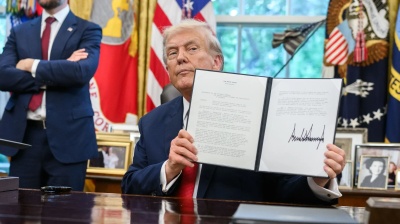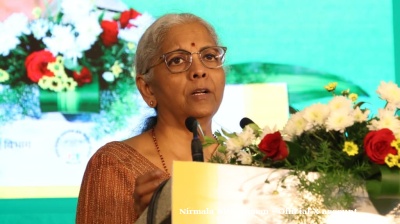International financial institutions have revised Brazil's GDP growth projections for 2025, with the IMF predicting now higher growth than in the last forecast, at 2.3%, and the OECD forecasting that GDP is to expand 2.1%.
The IMF upgraded its April forecast from 2.0% to 2.3% following its Article IV consultation after the lender's staff visited the country in May, according to a statement released on June 3.
The IMF expects inflation will reach 5.2% this year before gradually converging to the 3% target by end-2027.
“The Central Bank of Brazil’s (BCB) pivot to a tightening cycle in September 2024 was appropriate and consistent with bringing inflation and inflation expectations back to the 3% target. Above-target near- and medium-term inflation expectations, as well as a widening positive output gap, supported the case for the BCB’s rate hikes," the IMF stated.
Meanwhile, the OECD – composed of the 38 most industrialised and democratic countries – issued a more conservative projection forecast for growth, at 2.1% in 2025 and just 1.6% in 2026, warning about structural limitations hindering robust recovery.
The organisation projects inflation at 5.7% in 2025 before easing to 5.0% in 2026.
The forecasts for GDP growth issued by both bodies mirror that of Brazilian economists surveyed weekly by the central bank, with the average response for growth in 2025 coming this week at 2.13% in 2025 and 1.80% in 2026.
The IMF and OECD’s inflation forecasts for Brazil stood slightly higher than those of Brazilian analysts, who see annual price rises at 5.46% in 2025 and at 4.50% in 2026.
Despite robust 3.4% GDP growth in 2024, both institutions pointed to early signs of economic slowdown as domestic demand weakened and industrial production remained subdued. The Central Bank has raised rates to 14.75%, with the OECD projecting further increases to 15% by end-2025.
Both institutions flagged impending fiscal challenges, with the OECD noting the policy is expected to remain modestly expansionary despite targets for a balanced primary budget in 2025 and a 0.25% GDP surplus in 2026.
Persistent spending pressures from social benefits and minimum spending requirements for healthcare and education, in particular, pose significant challenges.
Interest payments, currently around 8% of GDP, are expected to continue rising along with interest rates, increasing gross public debt.
The OECD recommended lowering market entry barriers, easing regulations, boosting infrastructure investments and fostering competition to boost productivity.
It also noted that over 30% of public infrastructure projects are interrupted, suggesting Brazil should reform its automatic spending rules.
News

Trump authorises CIA covert operations in Venezuela to topple Maduro
The White House has acknowledged granting the Central Intelligence Agency sweeping powers to conduct covert operations aimed at unseating President Nicolás Maduro, the NYT reported.

India’s finance minister to miss upcoming IMF and World Bank meetings
India’s Finance Minister Nirmala Sitharaman will not attend this week’s annual meetings of the International Monetary Fund and World Bank in Washington, as trade negotiations between New Delhi and Washington remain unresolved.

Young Ukrainians asylum seekers fleeing the war for Germany surges
The number of young Ukrainian fleeing the war and seeking asylum in Germany has surged, following Ukraine’s decision to partially lift its travel ban for men aged 18 to 22, according to figures from the German Interior Ministry.

US may double support for Argentina to $40bn conditional on policy reforms
Washington buys Argentine pesos and mulls creating a new private sector-led $20bn debt facility, which would bring total support to $40bn with the existing swap line, Treasury Secretary Bessent said.

.jpg)
